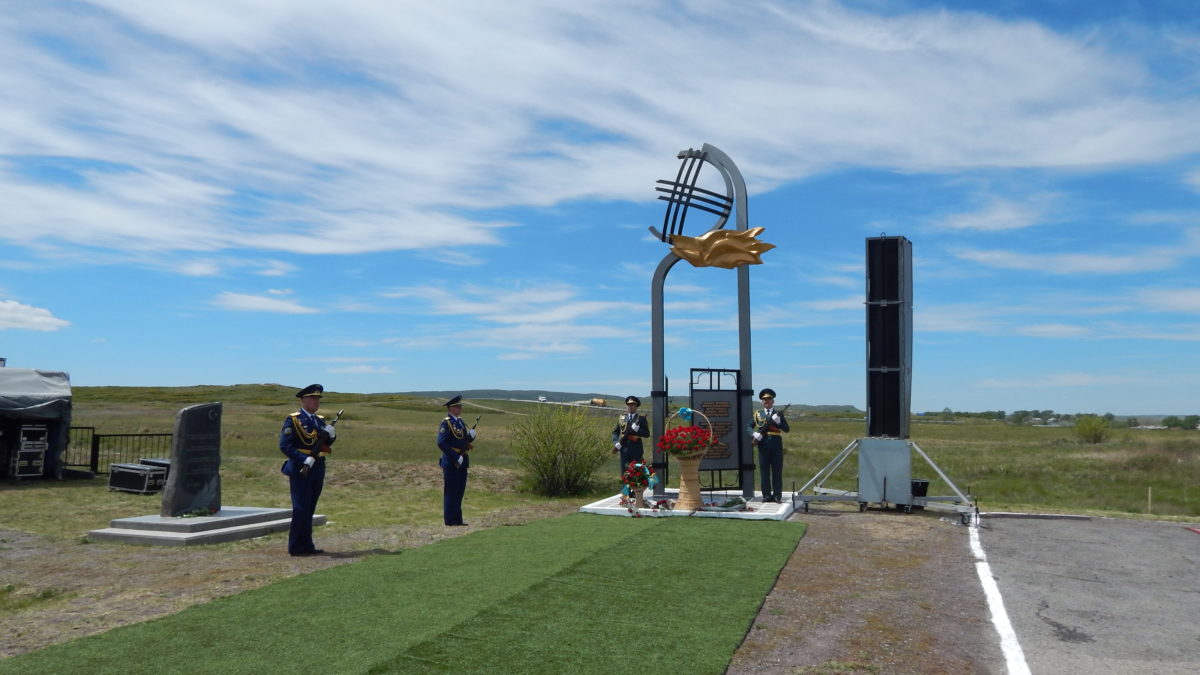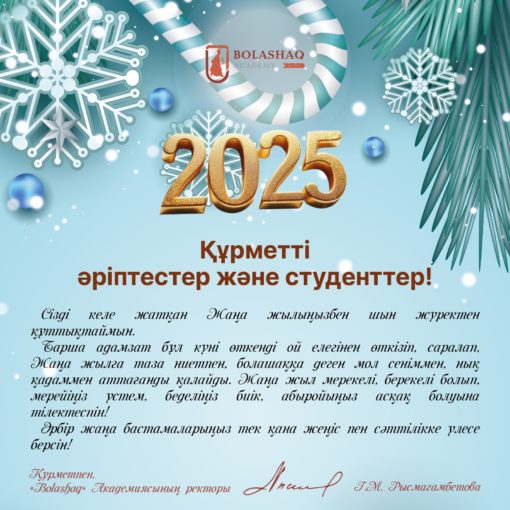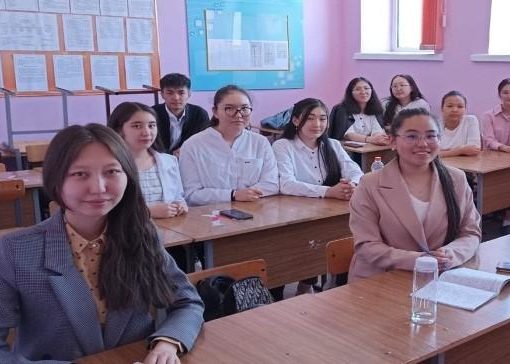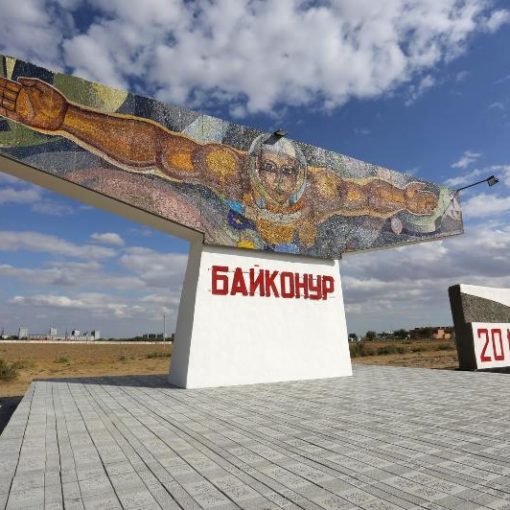Each year, the faculty and students of Bolashaq Academy pay tribute to the memory by participating in a requiem rally.
On May 31 on Memorial Day of victims of political repressions and famine in Kazakhstan at the Spassky Memorial a solemn meeting is held and wreaths are laid in memory of the deceased. The rally is attended by official representatives of different states. The modern generation must remember how important it is for descendants to know the burial place of their ancestor and to bow to that place, which was the last resting place for a man condemned by a totalitarian system.
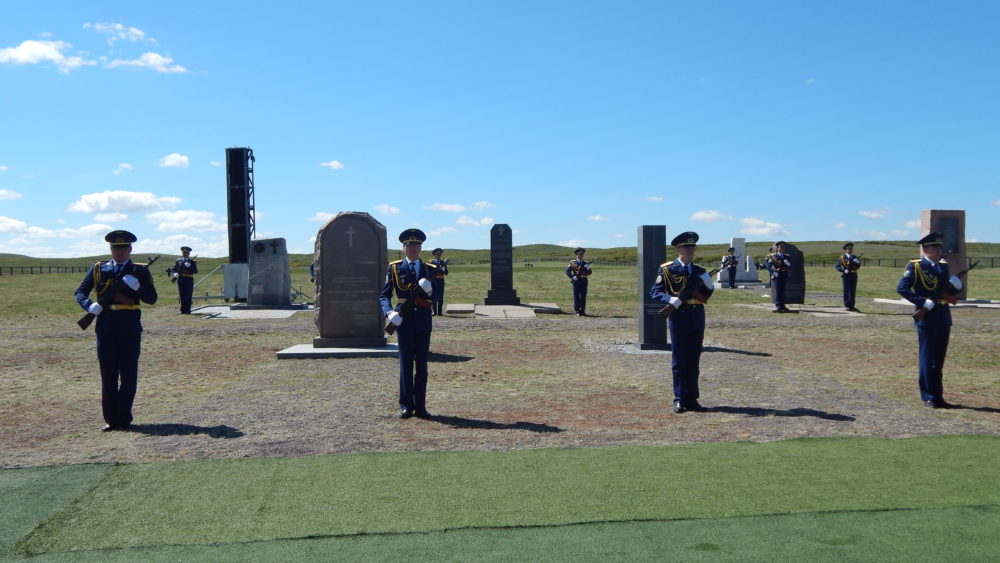
From the late twentieth century to the present day Spassk is an international memorial complex with an estimated 5,000 to 8,000 burials of political prisoners, deportees, prisoners of war and internees, which has become a memorial place for people from many foreign countries who have lost their compatriots here.
To date, this complex includes 28 memorials to victims of political repression. More than seven thousand foreign soldiers have forever remained in the Karaganda earth. The cemetery located near Spassk, – one of the few survived to this day.According to archival data, more than five thousand prisoners of war were buried here.Two thousand anonymous graves are scattered across the region.
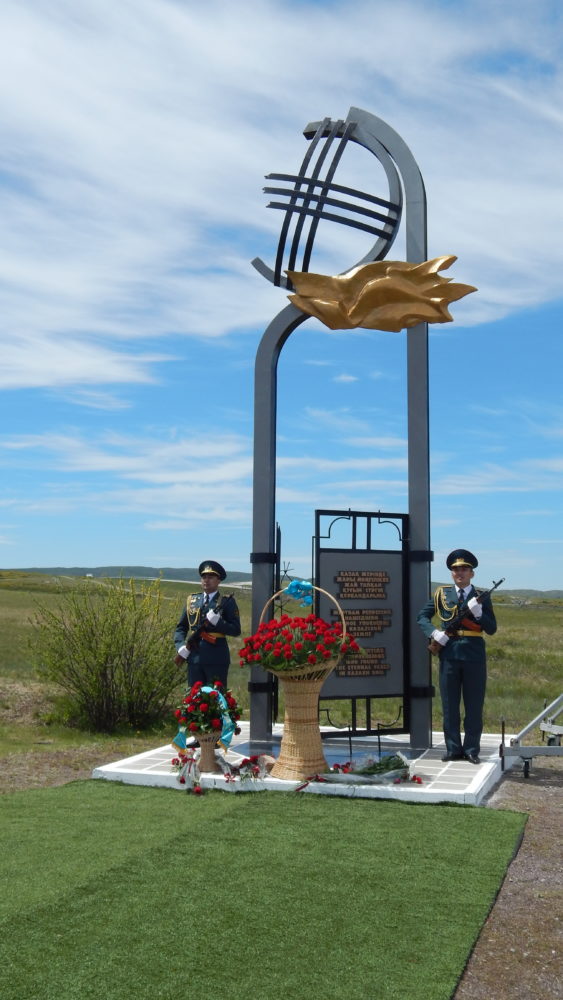
The first to erect a memorial sign in 1987 in Spassk was the government of Japan. Since the early 1990’s representatives of various foreign countries began to establish memorials to their compatriots, buried in Central Kazakhstan.
On May 8, 1994 with the participation of Ambassador Extraordinary and Plenipotentiary of France in the Republic of Kazakhstan B.F. de Foucault the monument to the citizens of France, buried here, was opened.
The monument to the Finnish prisoners of war was established on October 25, 1994 with the participation of the Finnish Society for the preservation of memory of the victims of the war.
In 1995 the German government erected a memorial to its compatriots – prisoners of war and internees of World War II, who died and were buried in the Karaganda region.
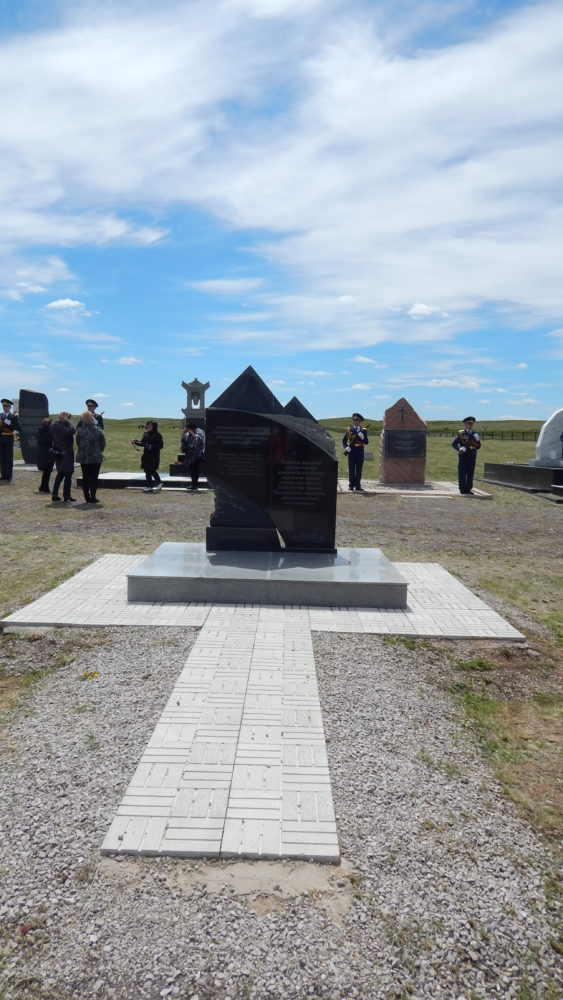
In 1995, the Ukrainian government erected a memorial to its compatriots who died in Kazakhstan in the 1930’s and 1950’s, at the Spassky Cemetery.
In the mid-1990s the Italian government erected a monument at the Spassky Cemetery to Italians buried in Kazakhstan.
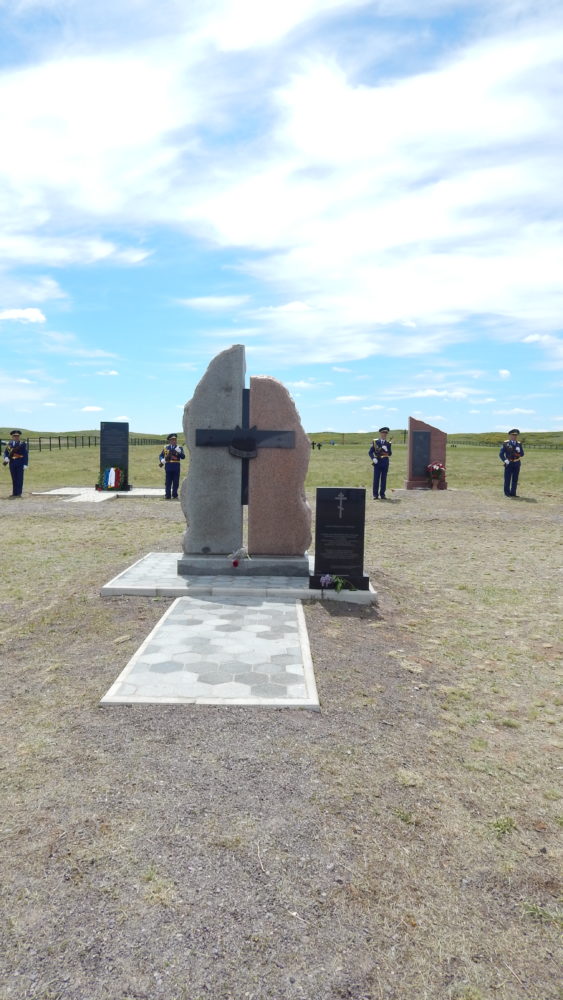
In 1996 the Government of Poland erected a memorial to Poles, victims of Stalinist repressions and prisoners of war of the Second World War, who were killed and buried in the Karaganda region, at the Spassky memorial cemetery.
On May 31, 2000 a monument to the prisoners of war – victims of the Second World War was opened by the Government of Hungary at the Spassky cemetery.
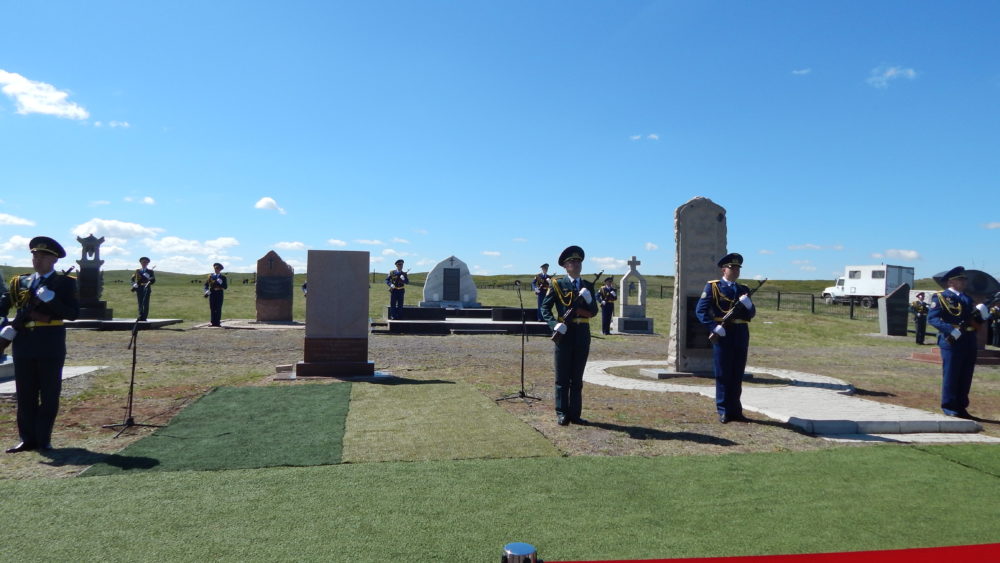
On September 9, 2003 at the Spassky cemetery was established a monument to the Romanian prisoners of war with the inscription: “In memory of more than 900 Romanian prisoners of war, who died in Stalinist camps in Central Kazakhstan in 1941-1950.
On April 24, 2004 on the Day of Remembrance of victims of the 1915 genocide Armenian cultural center “Erebuni” in Spassk established a sign – khachkar of memory of Armenian victims of political repressions.
On May 31, 2004 with the participation of State Secretary of the Ministry of Social Security and Labour of the Republic of Lithuania V. On 31 May 2004 with the participation of the State Secretary of the Ministry of Social Security and Labour of the Republic of Lithuania Murauskaitė and Ambassador Extraordinary and Plenipotentiary of the Republic of Kazakhstan R. Visokavičius, there was an opening of the memorial monument to Lithuanian prisoners of NKVD-MIA camps in Kazakhstan with the inscription “First sign of respect to Lithuanian prisoners of Spassk, established after restoration of Lithuanian independence in 1990”.
On May 31, 2004, the memorial sign “To the victims of repressions, who found eternal rest in the land of Kazakhstan” (authors: M. Kalkabaev, V. Trotsenko) was established on the Day of Remembrance of victims of political repressions from Kazakhstan.
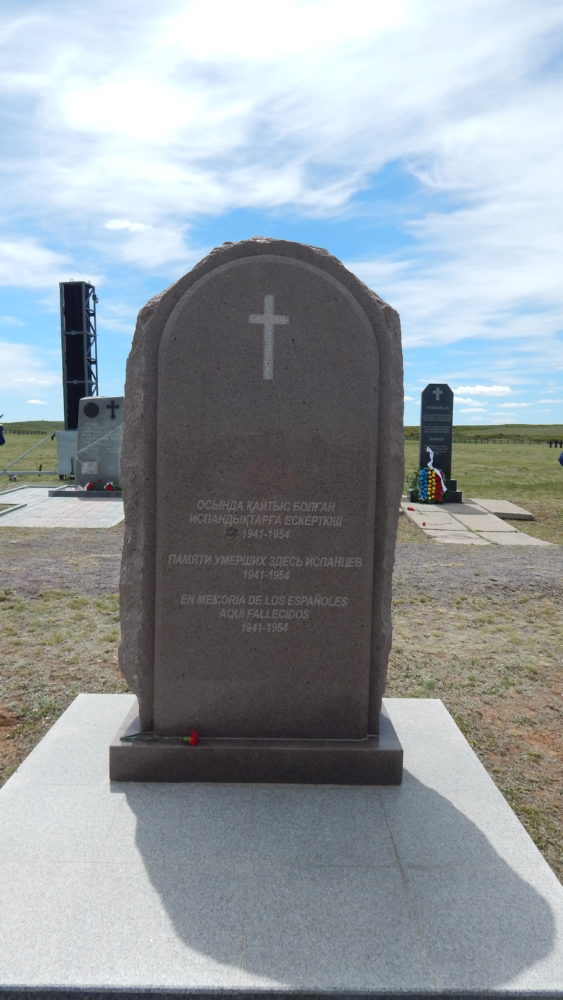
On September 10, 2004 with the participation of the Ambassador Extraordinary and Plenipotentiary of the Russian Federation in the Republic of Kazakhstan V. Babichev the solemn opening of the memorial for the Russian citizens who died during the Stalin repressions in Central Kazakhstan took place.
On May 31, 2007 with participation of Ambassador Extraordinary and Plenipotentiary of Kyrgyzstan in the Republic of Kazakhstan J. Saadanbekov the memorial in memory of the Kyrgyz was opened.
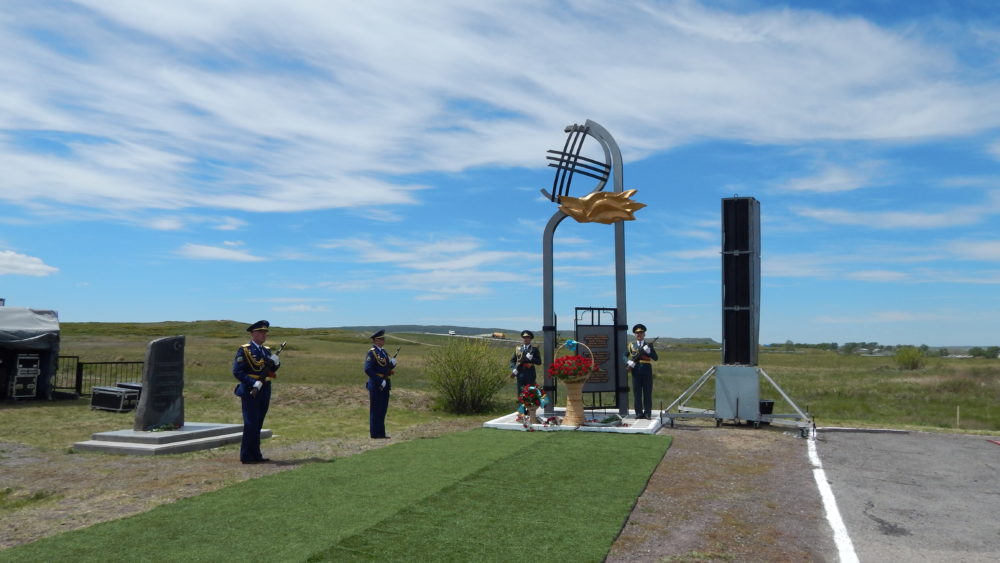
On May 31, 2008 with participation of the Ambassador Extraordinary and Plenipotentiary of Georgia in the Republic of Kazakhstan Zurab Shurgai solemn opening of the memorial monument to Georgians – victims of political reprisals of 30-50th years of the XX-th century, buried in the Karaganda area took place.
On May 31, 2008 with the participation of Ambassador Extraordinary and Plenipotentiary of the Republic of Azerbaijan to the Republic of Kazakhstan Latif Gandilov the memorial in memory of the Azerbaijanis was opened.
In October 2008 a memorial sign in memory of the Koreans who died during the repressions in Kazakhstan was installed in the Spassky cemetery. The solemn opening of the monument took place on May 31, 2009, on the Day of Remembrance of victims of political repressions, with the participation of the Ambassador Extraordinary and Plenipotentiary of the Republic of Korea in the Republic of Kazakhstan Lee Byung-hwa.
In May 31, 2010 the opening of the memorial sign to Jews – victims of political repressions took place. In 2012, two more memorials were added to the number of memorials – of Moldova and Slovakia.
June 2, 2013. Latvian President Andris Bērziņš unveiled a monument to Latvians who found their resting place in Kazakhstan.
On May 31, 2014, a memorial to Belarusians – victims of political repressions was unveiled.
On May 31, 2015, representatives of the embassies of Spain and Estonia unveiled memorials to their compatriots.
On May 31, 2016, the memory of Karachai-Balkars who died in camps during the Stalinist repressions was commemorated.
On May 31, 2018, two memorials to citizens of Iran and the Czech Republic were unveiled.
The destinies of ethnic groups that ended up, sometimes unwillingly, in the land of Kazakhstan, are united by a common historical memory that united the people in the face of an inexorable totalitarian system. The Kazakh society has developed such qualities as mercy, compassion, empathy and sympathy for the destinies of the peoples of the world. This has made it possible to endure and raise a modern generation which knows and respects the history of its people.
The Spassky Memorial Complex remains the place where the social memory of the peoples of the world about the repressed, deported, prisoners of war, internees is concentrated. We mourn them all together and each deceased separately.
Director of the Rukhaniyat Research Center A.U. Aupenova

